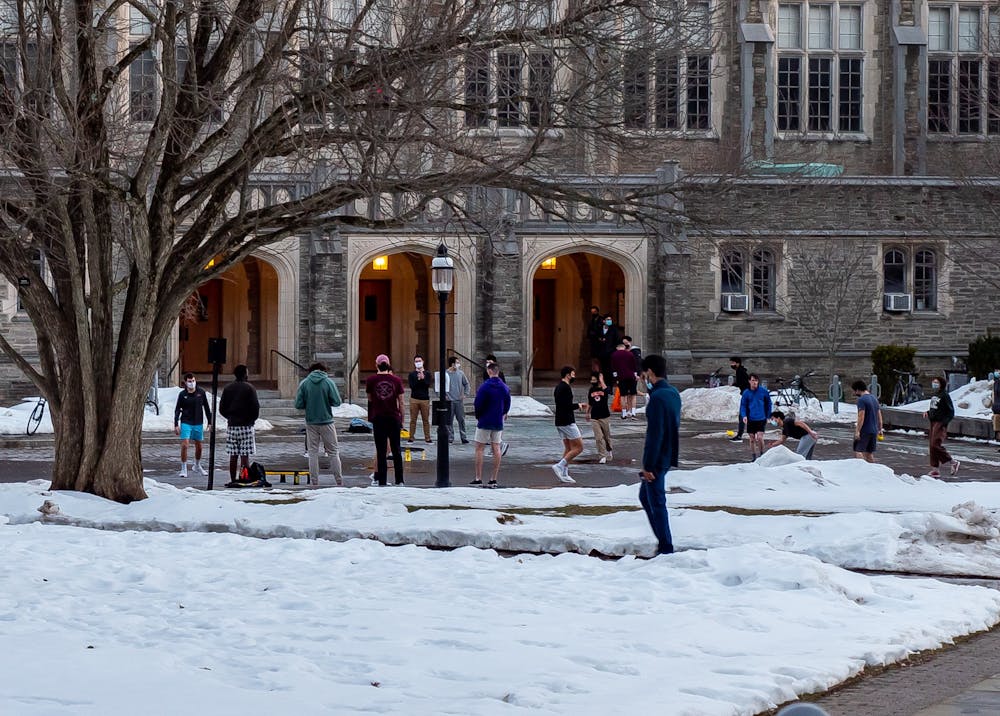As we begin reading period, the Princeton community is entering our semesterly sprint to the finish. Many resources are offered to mitigate our inevitable stress — emails about Counseling and Psychological Services (CPS) and various study-break activities chief among them. While the University and student focus is often on expanding student support during exam periods, the overall health of students throughout the semester deserves more attention. Further, our current dialogue on advocating for increased mental health resources should also consider implementable changes that more holistically approach and mitigate the causes of mental health issues.
Princeton needs to do a better job of creating conditions that support student maintenance of good mental health and well-being throughout the semester. Encouraging extension requests as needed and providing greater access to CPS is great and necessary. But while students’ efforts to remove impediments to mental health resources continue, we would be best served to also discuss how the University can provide better services to benefit our general well-being — changes that, in turn, would also improve our mental health.
What do Princeton policies directed towards improving “general well-being” even look like? Instituting programs which support physical health might be a good place to start. University students around the country may feel they must sacrifice physical activity to spend more time on academics. Yet good physical health directly correlates with improved mental health in college settings. Physical education requirements, although declining in popularity at universities in the United States, still have long-term positive impacts that may benefit Princeton students. Despite possible implementation difficulties and student resistance, requiring physical activity could help reduce the mental toll Princeton takes on students, adding a preventative measure to our current reactionary resources predicated on students’ already poor mental health.
I myself am not wedded to the idea of Princeton-mandated physical activity. Generally, however, the University should do more to encourage physical activity (even if not in the form of traditional mandatory physical education). Engagement with Campus Recreation (Campus Rec), the primary body offering fitness opportunities is mostly a self-selecting process. Students with past athletic experiences are probably more likely to use Campus Rec facilities. But improving the physical (and overall) health of the student body requires efforts that reach everyone, regardless of their hesitancy towards physical activity because of high workloads, little past experience with athletics, or possible Campus Rec accessibility shortcomings.
Beyond prioritizing physical health, the University should encourage students to take more breaks while studying throughout the semester. Daily periods of rest in the middle of academic pursuits generally improve student productivity. Emphasizing the importance of taking breaks to new students — both for the sake of their health and with regard to maximizing productivity — could be an important detail added to orientation programming. Speaking with a few freshmen, I found that orientation did not cover study tips in general, much less the significance of intermittent breaks while working. Overall, finding new ways to have more students taking breaks at peak studying hours may contribute small gains in students’ mental health.
Although these proposals would likely benefit from being implemented alongside larger administrative restrictions on professors assigning heavy workloads, as well as the cultivation of a Princeton environment that is more willing to ask for extensions, the value of developing students’ healthy habits cannot be understated. While not a panacea for students’ mental health issues, proposals surrounding study breaks and physical activity can preventatively reduce downward stress spirals and mitigate mental health challenges. Current resources provided by the University, most notably CPS services, focus on responding to downturns in students’ mental health. Although important, Princeton can also take steps to help students manage daily stress and encourage a healthier lifestyle that can, to some extent, preclude students’ mental health struggles.
To that end, we as a student body must get more creative in proposing solutions that benefit our mental and overall health. Improving the long-term outlook on mental health at a rigorous academic institution requires thinking outside the box. Princeton students’ current mental health advocacy strategy, while rightly focused on CPS accessibility and liberal extension policies for class assignments, would benefit from adopting a broader scope. Considering structural changes that establish the environment for healthy student habits, in addition to calling for increased mental health resources, would benefit student discourse around mental health and ultimately improve the Princeton experience for all of us.
Rishi Khanna is a senior in the politics department and is a contributing Opinion columnist from Newton, MA. He can be reached at rskhanna@princeton.edu.








